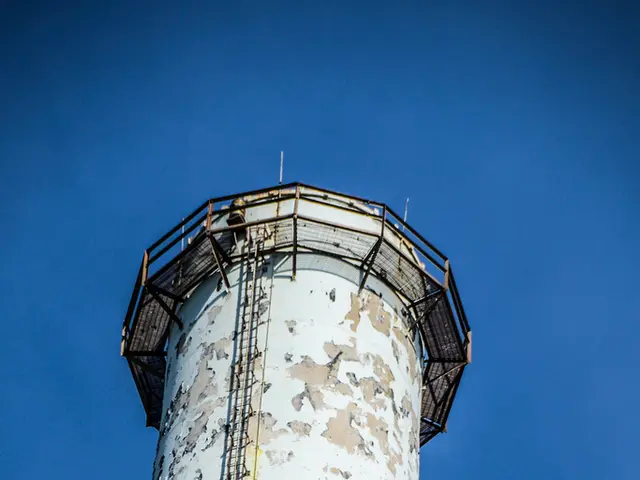U.S. intensifies pursuit of Hamas leader Yahya Sinwar, aiming to bring an end to the conflict in Gaza
The U.S. is hot on the tail of Hamas's Gaza chief, Yahya Sinwar, according to anonymous U.S. officials speaking to Middle East Eye, as the Biden administration seeks to help Israel achieve "total victory" in the ongoing conflict in Gaza.
Sources close to the matter revealed that the U.S. is stepping up its search efforts across the region, after initially suspecting that Sinwar was hiding in tunnels beneath Gaza. A U.S. official, speaking off the record, hinted at the possibility that Sinwar may have fled to Egypt's Sinai Peninsula, and potentially moved on to either Lebanon or Syria.
Without commenting on specific intelligence, current and former officials suggested that U.S. intelligence was lagging on Sinwar's last known whereabouts, which was within the Gaza Strip. Bruce Riedel, a former CIA official and advisor to four U.S. presidents on national security, criticized the lag, stating: "One month means you aren't even close to real-time information."
In previous statements, a Hamas official claimed that Sinwar had left the safety of the tunnels and visited combat zones above ground, taking part in meetings with the group's leadership abroad. However, these claims have not been independently verified.
Tracking Sinwar gained new urgency within the U.S. intelligence community due to the belief that finding him could help pressure Israel to end the war by declaring victory, according to officials.
The hunt for Sinwar reminds many of the prolonged search for Al Qaeda leader Osama Bin Laden, which took ten years and eventually led to his discovery in Pakistan, right next to a military academy of the U.S.'s counterterrorism ally.
Reports suggest that Washington wants to direct Israel's energy towards locating key Hamas leaders, such as Sinwar and Mohammad Deif, the head of the al-Qassam Brigades, in order to avoid widespread assault on Rafah, the southern Gaza border city which currently hosts around 1.4 million displaced Palestinians.
However, doubts remain about the effectiveness of killing Sinwar in bringing about a ceasefire agreement, as some argue that it may not be sufficient for the political survival of Israeli Prime Minister Benjamin Netanyahu.
As of now, there are no credible official reports confirming where Sinwar is believed to be hiding after allegedly fleeing Gaza. If any evidence emerges indicating that Sinwar has survived or is hiding elsewhere, it remains unsubstantiated by mainstream or verified sources at this time.
- The U.S. is intensifying its search for Hamas's Gaza chief, Yahya Sinwar, not only in Gaza but also across the Middle East, with possible locations suggested to be Egypt's Sinai Peninsula, Lebanon, or Syria.
- Analyzing the situation, U.S. intelligence is reportedly lagging behind as Sinwar's last known whereabouts were within the Gaza Strip.
- In the ongoing war-and-conflicts in Gaza, officials believe that locating Sinwar could help Israel achieve "total victory," making it a high- priority for U.S. intelligence.
- Amidst the search, there are speculations that Sinwar left the safety of Gaza's tunnels and visited combat zones above ground, a claim yet to be independently verified by the media.
- The hunt for Sinwar echoes the prolonged search for Al Qaeda leader Osama Bin Laden, another crucial figure in war-and-conflicts, who was eventually discovered in Pakistan ten years later.
- The Biden administration is reportedly pushing Israel to focus on locating key Hamas leaders, such as Sinwar and Mohammad Deif, to minimize the assault on Rafah, a city housing 1.4 million displaced Palestinians.
- Despite the urgency and the prolonged search, there are doubts about whether capturing or killing Sinwar would be enough to broker a ceasefire agreement, considering its potential impact on political politics, particularly within Israel's leadership, such as Prime Minister Benjamin Netanyahu.







